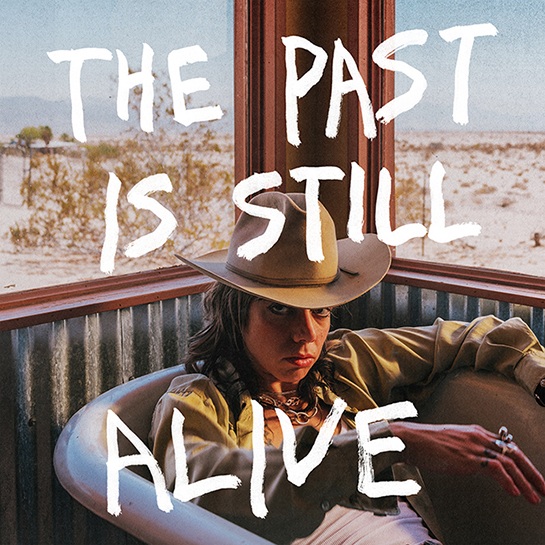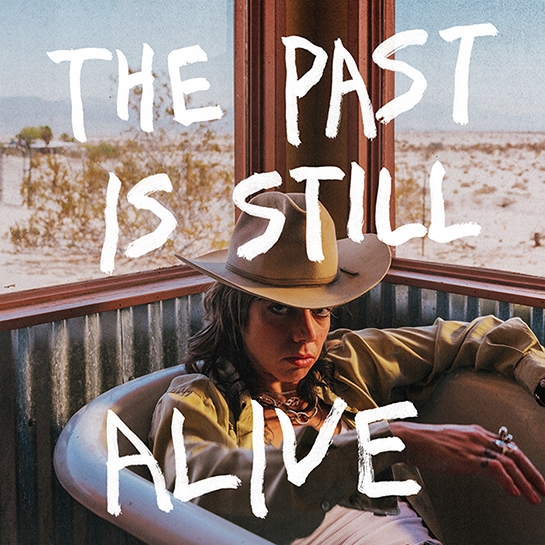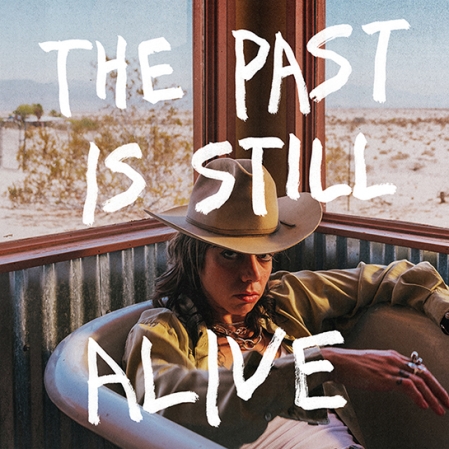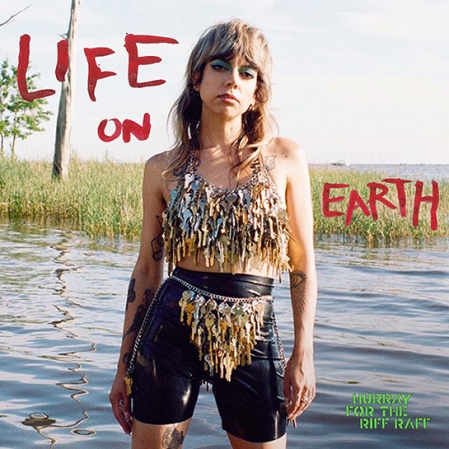Hurray for the Riff Raff (aka Alynda Segarra) created The Past Is Still Alive during a period of personal grief, when they found inspiration in radical poetry, railroad culture, outsider art, the work of writer Eileen Myles, and activist groups like ACT UP and Gran Fury. Segarra uses their lyrics as a way to immortalize and say goodbye to those they have loved and lost, and to honor both the heartbroken and the hopeful parts of themselves. "Segarra has created an epic tale of life on the road, a nearly mythic version of their own life story that stands alongside other great American musical travelogues," exclaims NPR Music. "Career-defining." Rolling Stone says: "Segarra has honed their craft into a cohesive, astonishingly realized singer-songwriter record ... the best batch of songs Segarra's ever written." Paste calls it "a celebratory measure of love, sanctuary, and defiance ... In their hands, the trauma of the present day is a prelude to the possibilities of a better tomorrow."
Hurray for the Riff Raff (aka Alynda Segarra, they/them) opens the doorway to a language and world that are finally their own. Out now on Nonesuch Records, The Past Is Still Alive represents a new beginning in Segarra’s lauded evolution as a storyteller. During a period of pain and personal grief, they found inspiration in radical poetry, railroad culture, outsider art, the work of writer Eileen Myles, and the history of activist groups like ACT UP and Gran Fury. Discovering a stronger, more singular style of writing, Segarra uses their lyrics as memory boxes to process their trauma, identity and dreams for the future. They immortalize and say goodbye to those they have loved and lost, illustrate the many shapes and patterns of time’s passing, and honor the heartbroken and the hopeful parts of themselves, as they deliver a first-person telling of their life so far. It is both a memoir and a roadmap, and though The Past Is Still Alive was made in North Carolina and produced by Brad Cook (Bon Iver, Kevin Morby, Waxahatchee), the Bronx-born, New Orleans-based Segarra brings listeners to places far beyond: vivid experiences of small shops and buffalo stampedes in Santa Fe, childhood road trips to Florida, struggles of addiction in the Lower East Side, days-long journeys to outrun the cops in Nebraska, and more across their most magnetic collection of songs yet.
Nonesuch Store orders include a limited-edition, autographed print of handwritten lyrics to the song “Colossus of Roads” while they last.
You can watch the video for the opening track, “Alibi,” here:
“The Past Is Still Alive is an album grappling with time, memory, love and loss, recorded in Durham, NC, a month after losing my father,” Segarra says. “‘Alibi’ is a plea, a last ditch effort to get through to someone you already know you’re gonna lose. It’s a song to myself, to my Father, almost fooling myself because I know what’s done is done. But it feels good to beg. A reckoning with time and memory. The song is exhausted with loving someone so much it hurts. Addiction separates us. With memories of the Lower East Side in the early 2000s of my childhood, mixed with imagery of the endless West that calls to artists and wanderers.”
The follow-up to their acclaimed Nonesuch debut, LIFE ON EARTH—which landed on Best of 2022 lists from the New York Times, Rolling Stone, NPR Music, Mojo, Uncut, among others—The Past Is Still Alive sees Hurray for the Riff Raff reunite with Brad Cook, while further expanding their creative cast of collaborators. Anjimile, Conor Oberst, and S.G. Goodman all join Alynda Segarra on vocals at various points throughout the LP, with a band of musicians including Cook, Libby Rodenbough, Matt Douglas, Meg Duffy of Hand Habits, Mike Mogis, Phil Cook and Yan Westerlund. Mike Mogis also mixed the album, and it was mastered by Heba Kadry.
The “nature punk” of Life on Earth marked a departure for Hurray for the Riff Raff, as they contemplated surviving and thriving amidst a world in crisis. The Past Is Still Alive brings the focus back inwards, with arrangements that are raw, melodies direct and indelible, and lyrics that are personal yet largely rooted in family and community. There are love songs to real characters, locations and mythic figures like Sky Red Hawk (“Buffalo”), the first trans woman Segarra ever met (“Hawkmoon”), queerness and sacred spaces for outsiders and the vulnerable, in the aftermath of the Club Q shooting (“Colossus of Roads”), leaving home behind and discovering oneself on the edge of the world (“Snake Plant”), short-lived romances and the wisdom gained through chaos (“Vetiver”). Elsewhere, in the self-portraits painted on “Alibi,” “Ogallala” and other album highlights, Segarra reflects on the land they have traveled, the hardships witnessed and bravery gained while running away from everything and everyone they knew at age seventeen, hopping freight trains and hitchhiking across the country with a band of street urchins.
PRODUCTION CREDITS
Recorded at Puff City in Durham, NC
Produced by Brad Cook
Engineered by Brad Cook and Paul Voran
Mixed by Mike Mogis
Mastered by Heba Kadry
Photography by Tommy Kha
Design by Mike Krol
MUSICIANS
Alynda Segarra, lead vocal (1-10), acoustic guitar (1-10), shaker (1-8, 10), harmony vocal (5, 8, 10)
Brad Cook, bass guitar (1-9), acoustic guitar (2), Wurlitzer (3), pocket piano (4), OP-1 synthesizer (4), vibraphone (8)
Phil Cook, electric guitar (1, 8, 9), piano (1, 2, 4, 7-10), organ (1-10), dobro (2, 4), Wurlitzer (5, 6), marimba (5)
Yan Westerlund, drums (1-10), tambourine (1, 4-10)
Mike Mogis, pedal steel (2, 10), synth bass (10), synths (10)
Meg Duffy, electric guitars (3, 5, 6, 8), synth guitar (5), harmony vocal (5), slide guitar (6)
Matt Douglas, baritone and tenor sax (5, 10)
Libby Rodenbough, fiddle (7, 9)
S.G. Goodman, harmony vocal (8)
Conor Oberst, harmony vocal (9)
Anjimile, harmony vocal (10)









